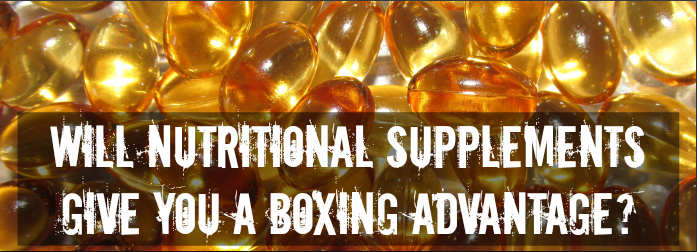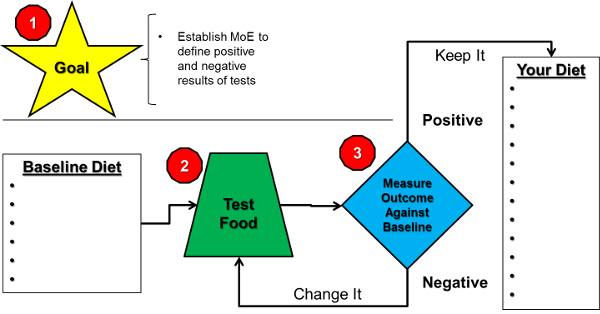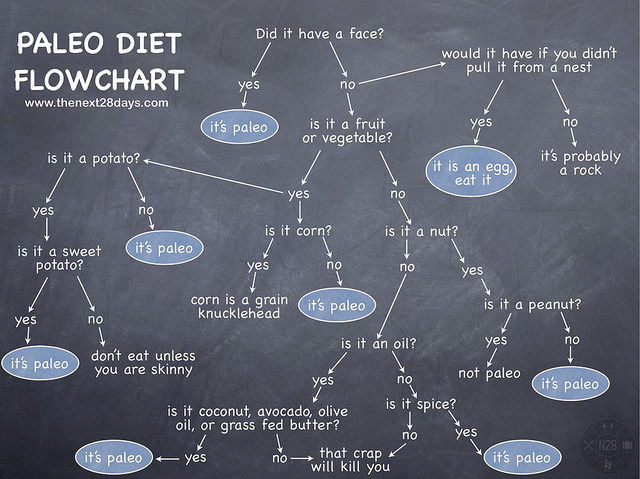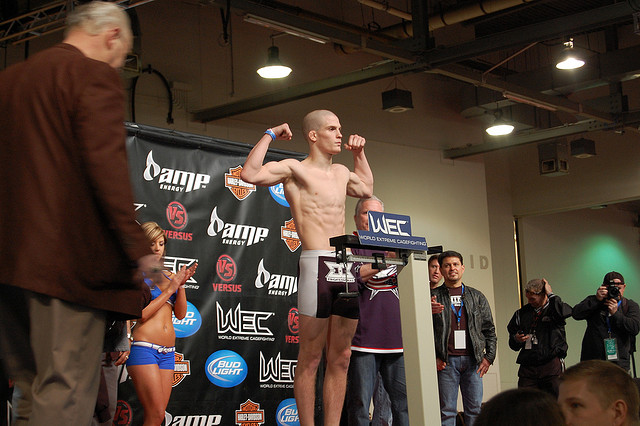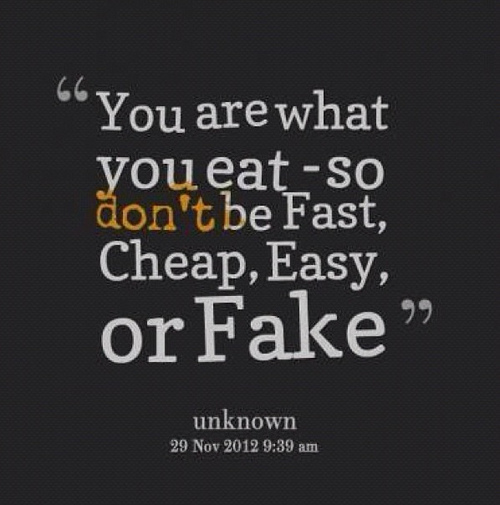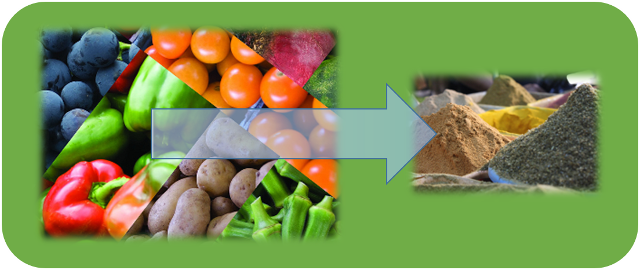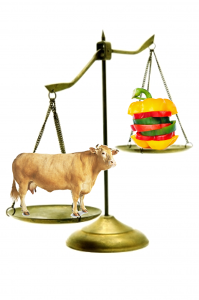After reviewing and using Athletic Greens for a couple months now, it's time to explain why I now recommend it instead of a daily multivitamin for my clients.
...But, before I discuss Athletic Greens in detail, I want to take a minute to let you ponder whether it is something you should be taking at all...
Do You Even Need a Nutritional Insurance Policy?
If you were to enroll in a Commando Boxing coaching program, until recently, one of the daily habits that I'd work to instill in you is the habit of taking a daily multivitamin. That habit is based on research such as that done by the WHO indicating that over 2 billion people worldwide in both developing and industrialized countries suffer from vitamin and mineral deficiencies (primarily iodine, iron, vitamin A and zinc), with important health consequences.
To help you transform your body and become a better boxer, my initial focus from a nutrition perspective is on eliminating any barriers to progress caused by deficiencies in Omega 3, vitamin and minerals, water, and protein. A daily multivitamin is one means of rectifying any potential vitamin and mineral deficiencies you may have.
A lot of people who use Commando Boxing are athletes and boxers looking to improve themselves in the ring. An even greater number of people are here to use boxing to improve their health and build a phenomenal body. That second group of people are even more prone to vitamin and mineral deficiencies resulting from either their current diet, or other diets they have engaged in in the past.
Consider this:
- Obese people not only have lower levels of vitamins and minerals in their blood, but those nutrients, if present, are less easily used.
- Studies associate Vitamin B6, B12 and chromium with less weight gain over 10 years. B6 and chromium are involved in metabolism so this is not surprising. The effect B12 has on weight gain is not as well known.
- Obese people tend to be deficient in Vitamin D which plays a key role in cardiovascular health.
- What's in your gut matters. The bacteria there plays a massive role in metabolism, digestion and ensuring any nutrients there are used by your body (nutrient uptake)
- Female athletes are particularly prone to iron, calcium, Vitamin B, and zinc deficiencies - all of them lead to nasty health consequences
...and quite frankly this list can go on and on...
If you're a conscientious eater who carefully monitors your food intake ensuring you eat plenty of fruits and vegetables and nutrient dense food in the right quantities, then a daily dose of vitamins and minerals may be totally unnecessary and a waste of money for you.
I consider myself one of those people, but I also know I spend a lot more time training than most people. I also have a very stressful, busy life and as much as I know I have to eat to support my training and lifestyle, I'm not 100% perfect.
That's why I still recommend everyone in my program gets a daily dose of vitamins and minerals as a nutritional insurance policy even if it makes more difference in some people's progress than others.
Too Much of a Good Thing
It is possible to overdose on vitamins and minerals. Vitamin toxicity is a real thing and given the abundance of vitamin fortified foods and supplements available as quick fixes to your nutritional deficiencies, can make it more common to take too much.
The nutritional strategies I try to instill in my clients focus around eating real food. That in itself is going to help most people achieve their goals, but I used to have them take a daily multivitamin, a daily Omega 3, and a daily greens supplement and now with Athletic Greens, I can have them eliminate the daily multivitamin if it works in their circumstances.
Other than that, the only other supplements I recommend for most people are a protein supplement and creatine in certain cases.
Despite many studies that have recently hit the news saying all vitamin supplements are bad - if you're not living on supplements and fortified, processed foods, the chances of overdosing or getting too much of a good thing is very, very small to the point of non-relevance.
My recommendation if you decide to start supplementing with a daily dose of vitamins is to cut out everything else enriched with vitamins and minerals and focus on eating real, unprocessed food. Do that and you'll have nothing to worry about and you'll still get the nutritional insurance of your daily supplement.
Introducing Athletic Greens - the Premium Superfood Cocktail?
Take 2 minutes and watch this short video. It will give you some of the history of Athletic Greens, why it came to be, and how it is different than what you could get by taking a multivitamin.
Even though it is a marketing video, the premise behind the product is in line with the basic premise of what I teach at Commando Boxing - eat whole, real food from natural sources. Watching it myself, I have to say I felt a little hypocritical considering I've been recommending a daily multivitamin for years. There really is nothing that isn't synthetic about the multivitamins I've been using and having other people use.
In terms of being in line with what I think people should be eating for optimal health and performance - Athletic Greens certainly beats any multivitamin I've seen. That in itself was a major plus for me and first tweaked the idea that perhaps Athletic Greens could replace my daily multivitamin - which led me to...
The Ingredient Comparison
Below is a table summarizing what you'll find in Athletic Greens versus what you'll find in a normal multivitamin (I compared a Costco multivitamin - Kirkland Formula for Men).
In the event that vitamin and mineral names and measurements put you to sleep - the jist of it is that not only does Athletic Greens address nearly everything the multivitamin does, in some cases it provides more (still within safe limits). Take a look:
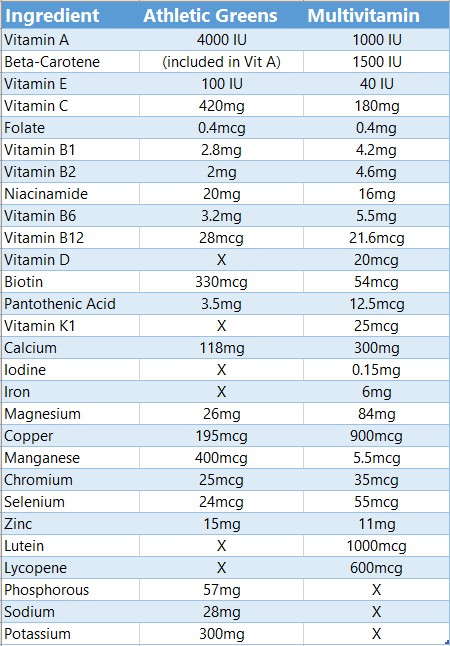
It's a little unfair of me to compare the multivitamin directly to Athletic Greens - kind of like comparing apples to oranges, but Athletic Greens is like a multivitamin on steroids (all natural steroids, of course). In addition to the vitamins and minerals it provides, you also get:
- 8453mg/serving of alkaline, nutrient dense, raw superfood complex. This matters because there are health benefits associated with alkaline diets that counteract acidity in your body.
- 3569mg/serving of nutrient dense, natural extracts, herbs, and antioxidants. One serving of Athletic Greens gives you the equivalent antioxidant capability of 10-12 servings of fruits/vegetables. Hard training increases the damage done in your body due to the oxidation process and these antioxidants help repair that damage.
- 233mg/serving of digestive enzyme and super mushroom complex and 7.2 billion/serving dairy free probiotics. It's not enough to just put the right nutrients into your body. Your body needs to be able to use those nutrients and these digestive enzymes and probiotics keep your gut healthy to increase nutritional uptake.
In total, every serving of Athletic Greens gives you optimal amounts of 75 specially selected nutritional ingredients where every single one provides nutritional benefit.
Happy that Athletic Greens was worthy of a chance based on what is in it, I obtained a 30 day supply and began taking it in place of my multivitamin...
Will Athletic Greens Turn You Into Superman (or Superwoman)?
I honestly can't sit here and definitively tell you that taking Athletic Greens instead of a daily multivitamin has made me stronger, more resilient to disease, leaner, or healthier.
I have no objective measurements, blood panels, or markers indicating that I am now healthier for having made the switch.
Everything I can tell you is completely subjective - but the most compelling reason I can give you as to whether it is good stuff or not is that I'm still paying for it monthly and take it every day. I crave it every morning which says something about how good it tastes and my body must like what it's getting from it.
I do feel great, but that isn't a massive indicator of effectiveness for me considering I usually do feel great. I already follow some pretty sound nutritional principles and generally don't eat junk, train every day, am lean and muscular, get enough rest, keep the stress in check, and don't really do anything on a regular basis that would mess up my health.
Perhaps Athletic Greens isn't having to work very hard in my body or maybe it is addressing any number of issues at a cellular level that I'm not even aware of that are contributing to my overall sense of well being enabling to go as hard and fast at 41 as I did at 21.
I guess it goes back to my initial comments on ensuring my clients do not have any nutrient deficiencies that are going to sabotage progress and I feel far better recommending a supplement made from whole foods instead of a synthetic multivitamin.
Now the Catch...It's Not all Roses
In doing this review I did some digging for dirt because I'm always skeptical - especially of supplements.
It didn't take me long to find that dirt. Do a Google search for Athletic Greens reviews and you'll quickly find that there are some angry people out there - primarily in the comments sections of the reviews. This concerned me as even though I like the product, I wasn't interested in associating myself with a company that could piss people off so badly that those people felt the need to spout venom in public over how evil Athletic Greens is.
The negativity oozing out of most of these comments revolves around three themes:
Gripe #1 - The Price
Athletic Greens is not cheap.
So you know, when I first wrote this - Athletic Greens was priced at $97 for a 30 day supply ($177 for a double dose supply). I take one a day meaning it used to cost me just over $3/day to drink this premium cocktail. Compare that to a year supply of multivitamins (one a day) at $20 and it's pretty obvious who wins on price alone.
Some of that price difference is made up in that you no longer have to buy both a multivitamin and a greens supplement, but Athletic Greens is still one of the higher priced greens supplements on the market.
Putting it in perspective though, my health matters to me and I'm able to afford the product by not buying two cups a coffee at work each day. It's a matter of priorities, but at this price, it is a premium product and it certainly does not fit into everyone's budget.
When I expressed the pricing concern to the company, I was told they are looking at adjusting the price - and in fact, that's exactly what happened - it is now $77 for a 30 day supply or $147 for a double dose. That means my daily cost is now $2.57.
In the event you want to give Athletic Greens a try you can currently get 10% off your first order by clicking here and then moving your cursor to top right of page like you're going to close the tab - that will trigger a popup that will give you the 10% deal, but before you do that be sure to read what I'm about to say next about their loyalty program before you click that link...
Gripe #2 - The Marketing - Specifically the Athletic Green's Loyalty Program
There is a marketing practice that some companies use called a forced continuity program. When someone buys a product or signs up for a subscription they are automatically enrolled in a subscription program that results in additional charges at certain intervals.
It is usually when people don't realize this when they sign up and suddenly see an unexpected charge on their credit card in 30 days time that they get angry - and understandably so.
Athletic Greens uses this marketing model and contrary to what they like to think (as I discussed it with them), it is not immediately obvious on their sign up page. There is a sentence mentioning the loyalty program under the sign up button that one is supposed to then click through to read about in the terms and conditions or review in the fine print on the page. If I didn't know what I was looking for, I would be surprised as well.
Let's review their terms and conditions concerning the loyalty program (bottom of page that loads):
How Does the Loyalty Program Offer Work?
Unless you cancel, we will automatically re-ship your selected supply of Athletic Greens 30 days from the date of your first order. Thereafter, you will continue to receive a fresh supply of Athletic Greens each month for as long as you stay a member of our loyalty program. The card you provided when you placed your initial order will be automatically charged the discounted price of $97 (single serve) or $177 (double dose) plus Shipping and Handling (plus tax if applicable for any shipments outside of the US) when each new order processes.
To cancel future shipments in your Loyalty Program, you must call our Customer Happiness Team on 1 888-390-6049 at least 24 hours prior to the date that your next order processes. All subscription cycles on our Loyalty Program are set to process every 30 days by default. You may customize the default subscription cycle (e.g. to 45, 60 or 90 days) at any time by sending an email to support@athleticgreens.com or calling 1 (888) 390-6049.
You may cancel anytime without penalty. Our Customer Happiness Team is available Monday through Friday 9am to 8pm EST and Saturday 9am to 6pm EST.
I suspect that if more of those people who left negative comments understood this at the time of ordering, there would be far fewer negative comments.
Loyalty programs are not all bad - and this one does have a clear benefit.
Whether it is training or nutrition, consistency is one of the biggest hurdles that needs to be overcome to continue making any progress. If Athletic Greens is going to be a part of your daily routine, you make it harder on yourself to be consistent if you do not have a constant supply showing up automatically at your door every 30 days when your initial supply is running out.
If you leave it up to yourself to manually reorder, there's a good chance you are going to miss a reorder point ending up with days or weeks where you don't have any on hand. That's just the result of being human.
Gripe #3 - The Refund Policy and Customer Service
I'm not making any excuses for Athletic Greens or their customer service department, but I can say that in dealing with them over the last few weeks, they have always been responsive, helpful, and reasonable.
I used to work as a grocery store manager and know for fact that there are some people in the world who are willing to complain no matter how accommodating you try to be - it's impossible to please everyone.
Those negative comments I read suggested that Athletic Greens would not cancel shipments or refund products. That is contrary to what the company told me and I quote:
We do have a 60 day money back guarantee, no questions asked.
Again, let's review an extract of the Athletic Green's refund policy from their terms and conditions:
Refund Policy
Products are provided with a 100% satisfaction guarantee. You may contact Athletic Greens (USA), Inc at support@athleticgreens.com within 60 days of the original order date for 100% refund of the product purchase price (excluding any shipping and handling charges) and obtain an RMA number and shipping instructions to return any unused product. Upon receipt of your return shipment, Athletic Greens (USA), Inc will either cancel the original credit card authorization or issue a full refund if you funds have already been collected, and shall only be paid on a one-time basis per household (as determined in Athletic Greens (USA), Inc’s sole discretion based on customer order data and IP address). In addition, Athletic Greens (USA), Inc reserves the right to refuse a refund to anyone reasonably suspected by Athletic Greens (USA), Inc to have previously taken advantage of Athletic Greens (USA), Inc’s satisfaction guarantee on more than one occasion.
I'm not trying to downplay any of the grievances that those who have left negative comments concerning Athletic Greens. Those people obviously did not have good experiences with the company and felt the need to express it publicly.
I will only add that Athletic Greens told me that 70% of the people who try the product for the first time stay on a subscription with them (I'm one of them...) so someone must be happy with what they are doing.
They also said they make it easy for people to cancel if desired and are flexible to extend the time between shipments if required. There is no commitment to remain on the subscription program but their customer happiness team will ask for the reason for cancellation and try to steer the customer towards a 30-60-90 day break before starting again. Ultimately though, the customer can just cancel.
The Verdict
For those that can afford it, Athletic Greens is far superior to a daily multivitamin and I would recommend you use it daily in the same manner.
As long as you understand how the loyalty program works and what you need to do to suspend a shipment or prevent a payment, then there will be no surprises on your credit card statement. Likewise if you are unhappy with the product, the terms for getting a refund (including your responsibilities) are plainly stated.
All in all, Athletic Greens is now one of my daily habits, replacing the multivitamin I once took, and recommended to those I work with. Considering few of us ever eat enough plants, there is nothing that compares to the total nutritional value you get from Athletic Greens. Boxon.
Now is the time to try
Athletic Greens.
Full Disclosure: Every review of a product on Commando Boxing is my opinion detailing the good and bad about the product being reviewed. If I like a product and continue to use it after trying it, I often join the company's affiliate program so that Commando Boxing makes a small commission off of any decision on your part to buy the product based on my recommendation. I never recommend something that I do not believe provides you any benefit simply to make a commission.

